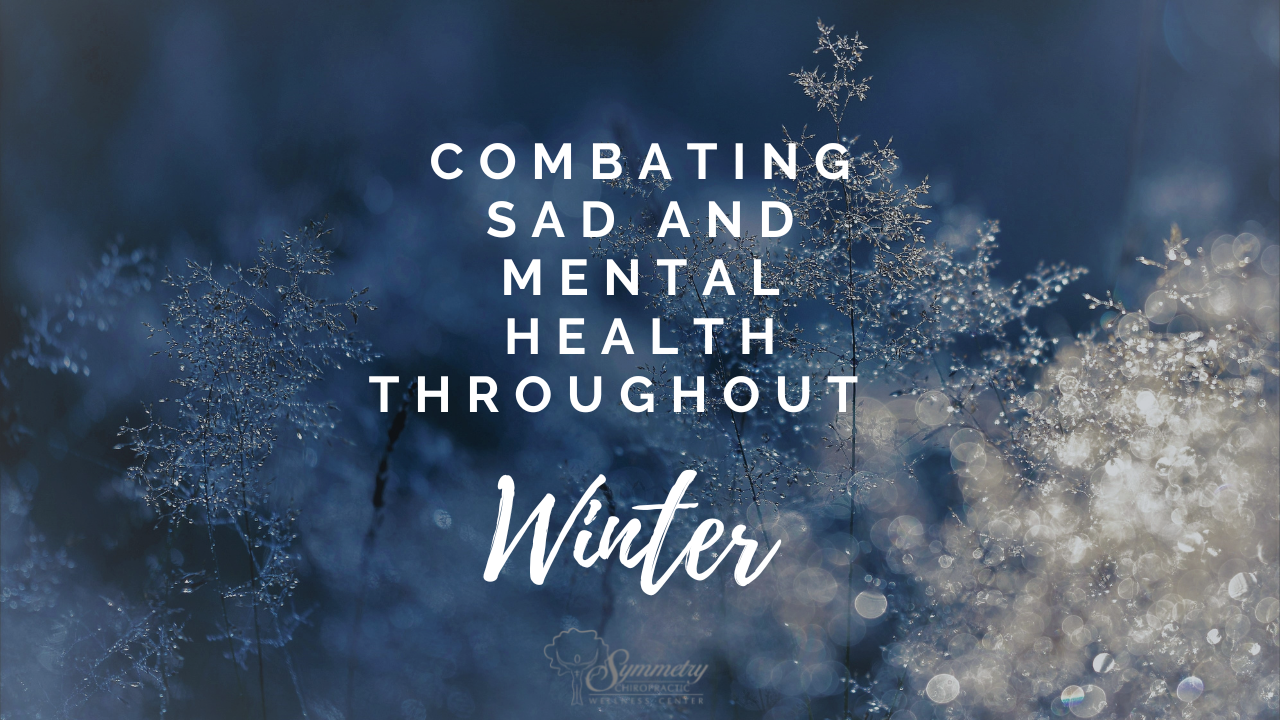
Combatting Seasonal Affective Disorder and Supporting Your Mental Health Through Winter
Nov 08, 2022If you read last week’s article, you know that seasonal affective disorder (SAD) may be due to a disruption in your circadian rhythm, leading to feeling sad and depressed during the dark days of the winter months. What can you do to combat the depressive symptoms associated with SAD? Here are 5 tips:
1. Exercise
Exercise improves your mood and energy as serotonin and dopamine levels are increased. It also gives you a chance to be more social, especially if you go to the gym with others or participate in group exercises.
A great way to get out and exercise with a group of people is to join us for the Turkey Trot 5k on November 24! You can register on your own by going to https://turkeytrot5k.itsyourrace.com/register/ - use code "Symmetream" for a $15 discount!
2. Volunteering/Doing Good
Volunteering can lead to the development of psychological resources such as self-efficacy and self-esteem that are helpful in managing stress. It also brings about a sense of community as you spend time connecting socially and knowing that you are helping others. Your dopamine levels also increase, resulting in a rewarding feeling and improved mood.
A simple way to get involved in your community is by donating to your local food drive. For the month of November, we are collecting donations for the Arlington Food Bank.
3. Bright Light Therapy
Use a light source daily with 10,000 lux of white, fluorescent light without ultraviolet wavelengths for 30 minutes in the early morning. You should be 12-18 inches from the light source with your eyes open, but not necessarily looking directly at the light. This will help regulate serotonin and melatonin and normalize your circadian rhythm.
4. Vitamin D
Decreased levels of vitamin D have been associated with clinically significant depressive symptoms as it plays a role in serotonin activity. You may produce less vitamin D as you spend more time indoors and there is less sunlight. A supplement of 1,000 IU daily may be beneficial for most of us.
5. Get Adjusted
As discussed in last week’s article, and many other articles, getting adjusted stimulates your vagus nerve. A branch of the vagus nerve affects many areas of the brain including the hypothalamus, amygdala and anterior cingulate cortex via the nucleus tractus solitarius located in the brainstem. The hypothalamus, amygdala and anterior cingulate cortex are all part of the limbic system, which controls the regulation of your emotions.
It also has a role in decreasing proinflammatory cytokine production, thereby modulating the inflammatory reflex. Inflammation has been found to have a role in many conditions, including depression.
When you get adjusted, your vagus nerve activates areas of your nervous system that fight the depressive symptoms associated with seasonal affective disorder.
You can book your free doctors consultation with us online to find out exactly how we can help you - simply book a new patient appointment on our portal here: https://www.atlaschirosys.com/booking/#/?s=13342295
Do you know of someone whose mood darkens as there is increasing darkness? Perhaps someone that becomes lethargic, more irritable, or more emotional during the fall and winter months? Share these tips with them!
For more information about registering for the Turkey Trot 5k or donating to the Arlington Foodbank, contact our office.
Do you find yourself looking to natural solutions for your family's health? We're here to join your team.
Subscribe to the Blog!
Ready to learn more about natural, drug-free solutions to your families health? Enter your name and e-mail below to join our mailing list.
We hate SPAM. We will never sell your information, for any reason.
